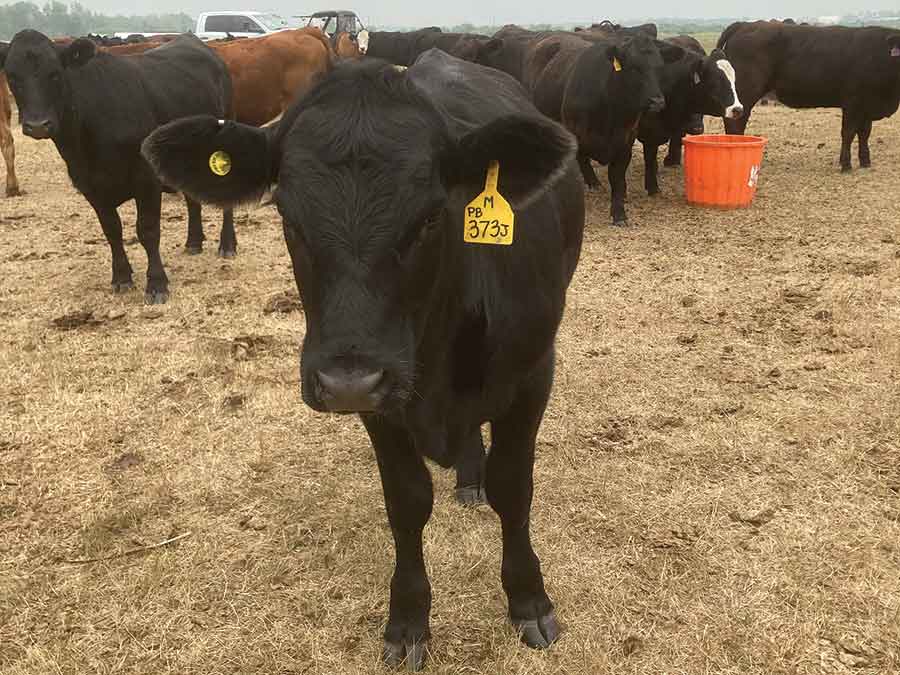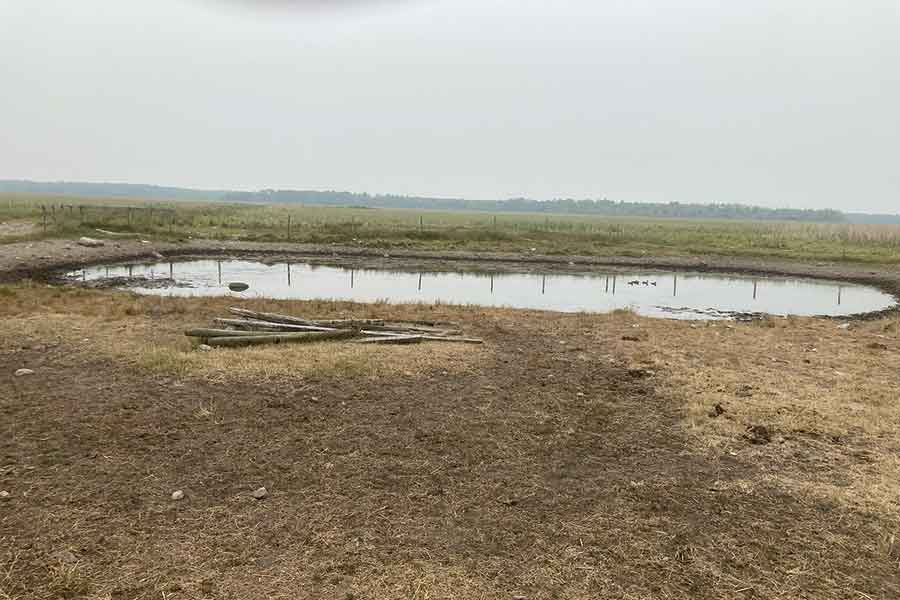Dry weather conditions are leading to a difficult summer season for many local farmers.
Recorded precipitation levels are less than 40 per cent of the normal level since March. These dry conditions have impacted local ag operations, including grain, hay, straw and cattle production.
Many local producers are facing economic hardship due to reduced crop yields, diminished forage supplies and increased costs to sustain livestock.
Darren MacMillan is keeping a close eye on his 1,100 cattle and pastures throughout the RM of Woodlands. He said the east two-thirds of the municipality is really dry, but the west portion is a little better.
“In some of the pastures in the east, I don’t know if they’ve had an inch of rain since the snow melted. I have pasture way up by Erinview and it’s hardly rained at all. The grass is brown,” he said.
“We’re going to have to start feeding cattle before long if something doesn’t change. They’re already eating in the sloughs and trying to get out of the fences. In most of my pastures, I have good water supply, but there might be one where the dugout could go dry so then the cattle will either have to be moved or else haul water.”
However, since much of the Interlake is experiencing similar dry conditions, MacMillan said it could be difficult to find resources for feed.
“Even the grain farmers, their crops are wilting up. The dairy producers that count on corn for silage, they’ve got to get rain,” he said.
“Part of the damage is done, but rain would help. Some of the crops could still take rain, but some are already near maturity so there isn’t going to be a lot of change.”
The RM of Woodlands has declared a state of agricultural emergency due to extreme drought conditions. The municipality is urging the provincial and federal governments to provide assistance to affected producers. In addition, the RM has forwarded its resolution to the Association of Manitoba Municipalities and other agencies.
“By putting the state of emergency, maybe that will allow us to access more government programs. Sometimes they pay for the cost of hay transportation from other areas or help you pay for feed,” MacMillan said. “That’s part of why they give you a state of emergency — so you can find ways out.”
Dianne Riding, who runs a cow/calf operation in Lake Francis at the north end of the RM of Woodlands, is also noticing the impacts of the dry weather. She grew up on a dairy farm and now runs a beef herd. She owns the family farm and is the fourth generation on some of the land.
“Conditions are not great right now in the livestock industry feed-wise. I know dugouts are drying up. Hay crops are very poor. Some folks I know are starting to feed hay to their cattle and this is July, not late August or September. Pastures are not producing like normal,” she said.
“Grazing will be cut short and supplement feeding will be happening way earlier than normal. The hay that’s fed now means they need to find more hay for winter. Grain crops that are very short and go through a combine will not leave any straw behind to be used for cattle. I know grain farmers are also taking a hit because of lack of moisture.”
She extends gratitude to grain producers who are allowing cattle producers to access straw or green feed in the coming months.
“Our best solution is to have the ag minister and his ag staff allow crop insurance to write off these crops that are short, heading out already with very few grain kernels, to turn the crop into green feed, which livestock producers can buy as cattle feed,” Riding said.
In addition to the RM of Woodlands, the RM of St. Laurent and RM of Coldwell have declared an agricultural state of emergency.
“We are more than willing to meet with the minister of Agriculture to discuss and provide information to those affected,” said St. Laurent Reeve Richard Chartrand.
The rural municipalities of Armstrong and Grahamdale are also looking into declaring a state of agricultural emergency.

